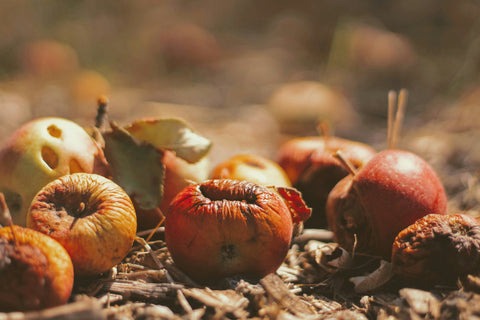Food is a human right. It’s right there in Article 25 of the Universal Declaration Of Human Rights that food is a core component of having an “adequate living standard,” and that’s why it's so profoundly disturbing that the recently published UN Food Waste Index has found that more than a billion meals are thrown away every day, despite more than 730 million people living in hunger around the world.
That’s right – there is enough food produced to more than feed the entire human population, but hundreds of millions miss out while so much of it is squandered.
All together this waste costs more than $1 trillion per year, and 60 per cent of the problem can be traced back to household waste.
And, sadly, the extent of the food waste problem is even bigger than that. These figures that the UN has published only count food that has reached the consumption end of the food chain. As we all know, a mammoth amount of food is rejected by supermarkets and ends up in landfill before consumers have a chance to even purchase it. That’s 13% of all food produced lost – the equivalent of more than 100 million additional meals.
But perhaps what was most interesting was the statistics about who was throwing out food. Surprisingly, those who are living in a state of food insecurity were actually throwing out almost as much food as the wealthy.
The statistics don’t delve into why, but there are several likely reasons: Poorer people might lack access to adequate refrigeration or the ability to freeze food. It’s also likely that they rely on lower-quality produce (discounted food at the end of its shelf life), or simply lack the time to actually cook.
This is a global tragedy, and something that we as a society need to come together to address. There is a silver lining that Australia is one of the countries that is seeing a decline in food waste, but there is still more that we can all do.
Things We Can Do To Minimise Food Waste
There are plenty of things that we can do to prevent food waste at home, and many of those we’ve covered in this handy guide. However, there’s more to it than being efficient with the storage and use of the food. Some of the other things to keep in mind include:
- Ignore best-before dates (but not use-by dates)
One of the big problems we have in Australia is a misunderstanding of the difference between best before and use by dates on food products. In short, a “use by date” is a “hard limit” where it becomes dangerous to eat the food, and food cannot be sold past that date. A “best before” date, meanwhile, is just a guide to the best time to consume food by. If it’s past that date, then you might not enjoy it as much (it may lose some flavour or texture), but it’s very unlikely to cause you harm.
You will find you throw out far less food if you stop paying attention to best-before dates and only follow the recommendations set by use-by dates.
- Learn how to tell if fresh food is still edible
A lot of people throw out food that they assume (or guess) is no longer good, or based on common myths that are not true at all. For example, people will often toss eggs, dairy or meat that is close to, or a single day past expiration, without knowing how to test to see if it’s still edible first.
Yes, the use-by date is important, but it’s calculated based on any number of factors through the supply chain, and there’s every chance that, properly stored at a proper temperature, it will still be edible for a short period after the use by.
So learn what sights and smells to look out for, and allow your own eyes and nose to be the guide. Fruits and vegetables, meats, and dairy all give very clear signs when they’re spoiling that you can learn to look out for. Here’s a useful guide to get started.
- Donate food you know you can’t use
There are plenty of organisations out there that you can donate food to. Don’t wait for it to spoil or go past the expiry. If you know you’re not going to use something, give the local Foodbank, homeless shelters, community kitchen or other charitable organisations a chance to use it.
We Can All Make A Difference
Food is one of the great joys in life, and Australia is blessed to have some of the finest produce and greatest food cultures. Let’s not waste it! Make sure you take full advantage of those Good & Fugly boxes, and all the flavours that are in there, and be generous rather than allowing food to go to waste. By coming together to fix waste at the supply chain level and waste from food allowed to spoil, we can all do our bit to ensure that no one in out communities goes hungry.



